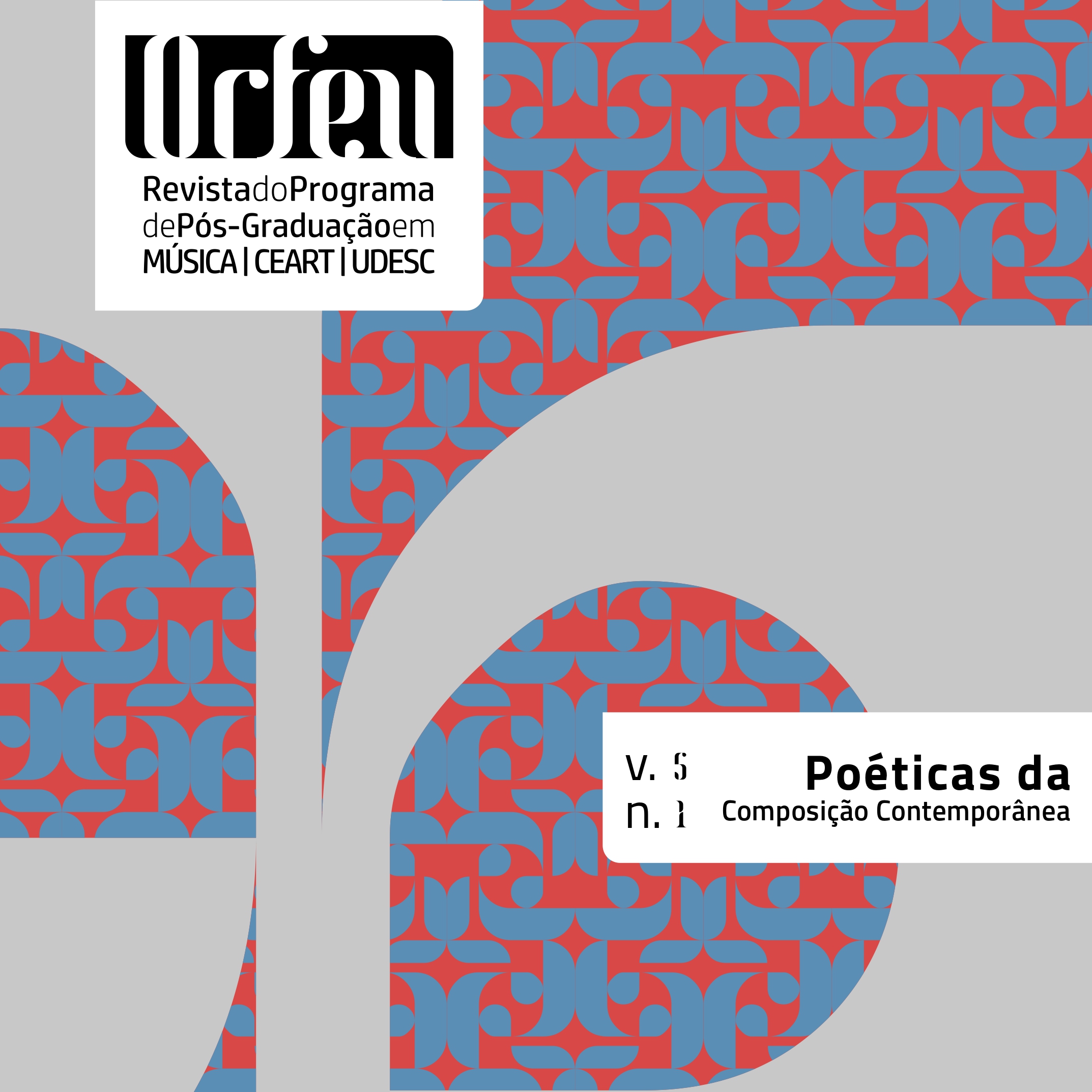O Pensamento Musical e Ideológico de Claudio Santoro na sua Fase Nacionalista: o Caso da VI Sinfonia
DOI:
https://doi.org/10.5965/2525530405012020407Keywords:
nationalism, Sixth Symphony, ideologyAbstract
The first transitional serial phase, and especially Claudio Santoro’s nationalist period (1949-1960) are characterized by a growing ideological commitment. In the nationalist period, this commitment deepens with the adoption of the norms established in the Second International Congress of Composers and Music Critics, which happened in the city of Prague
in 1948 with the aim of defining the style orientation of music in socialist realism. This adoption has profound consequences in Santoro´s style development, causing him to abandon the atonal and serial techniques, favoring the nationalist aesthetic. In this article, we contextualize this style transformation from the symphonic production perspective, defending the thesis that on the Sixth Symphony, the ideology principles are consolidated as well as the composition technique principles adopted in order to defend and practice the nationalist aesthetic. We will approach Santoro’s development of ideological thought. His determinant influences such as the Russian symphonism, will be pointed out, highlighting in musical analysis the influence of The First Viennese School in the composition process of the Sixth Symphony.
Downloads
References
ANDRADE, Mário de. Ensaio sobre a música brasileira. São Paulo: Livraria Martins Editora (INL), 1943.
BARTOK, Bela. La Influencia de la Música Campesina sobre la Música Culta Moderna. In: Escritos Sobre Música Popular. Madrid: Siglo XXI Editores S.A., 1995.
HINDEMITH, Paul. Kraft of musical composition. London: Schott and Co. Ltd., 1945.
MARIZ, Vasco. Claudio Santoro. Rio de Janeiro: Civilização Brasileira, 1994.
MENDES, Sérgio Nogueira. Claudio Santoro e a Expressão Musical Ideológica. Rio de Janeiro: Universidade do Rio de Janeiro (UniRio), 1999. Dissertação de Mestrado.
______________________. O percurso estilístico de Claudio Santoro: Roteiros Divergentes e Conjunção Final, Campinas: Instituto de Artes, Universidade Estadual de Campinas, 2009. Tese de Doutorado.
OLIVEIRA, Reinaldo Marques. Claudio Santoro e o Dodecafonismo: Um procedimento Singular. São Paulo: Universidade de São Paulo, 2005. Dissertação de Mestrado.
PERSICHETTI, Vincent. Armonía del Siglo XX. Madrid: Real Musical Editores, 1985.
SANTORO, Claudio. Considerações em Torno da Música Contemporânea Nacional, Música-Viva. Rio de Janeiro. Abril-Maio, 1941, p.5-7.
_________________. Problema da Música Contemporânea Brasileira em Face das Resoluções e Apelo do Congresso de Praga. São Paulo: Revista Fundamentos v.2 n.2, 1948, p.233-240.
SCHOENBERG, Arnold. Fundamentals of Musical Composition. Ed. Gerald Strang. London: Faber & Faber, 1967.
SOUZA. Iracele Lívero de. Santoro: Uma história em Miniaturas. Campinas: Instituto de
Artes, Universidade Estadual de Campinas, 2003. Dissertação de Mestrado.
VASCONCELOS, Erick M. The Symphony nº 4 “Brasilia”, by Camargo Guarnieri and the Symphony nº 6 by Claudio Santoro in Brazilian Twentieth-Century Nationalistic Symphonic Music. Austin, 1991. Tese de Doutorado em Música. The University of Texas at Austin.
Downloads
Published
How to Cite
Issue
Section
License
Copyright (c) 2020 ORFEU

This work is licensed under a Creative Commons Attribution 4.0 International License.
Authors who submit their manuscripts to be published in this journal agree to the following terms:
1. Authors retain the copyright and grant to the journal the right of first publication, whilst simultaneously permitting their work to be licensed under the Creative Commons License Attribution, which allows the sharing of work with recognition of the authorship and initial publication in this journal.
2. Contributions in this journal are open access; this means they are based in free use, and non-commercial applications.






